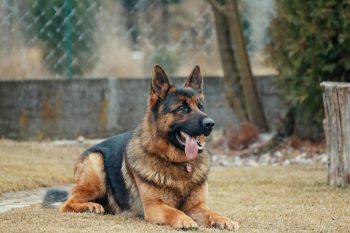Have you ever caught your dog in the act of eating poop and wondered, “Why on earth would they do that?” This unsettling behavior, known as coprophagia, is surprisingly common among dogs and can leave pet owners feeling baffled and concerned. Understanding the gross reason why dogs sometimes eat poop is essential for addressing and preventing this behavior. Not only is it unpleasant, but it can also pose health risks to your pet.
In this article, we will explore the various reasons behind this behavior, the potential health hazards associated with it, and practical steps you can take to stop it. By delving into the causes and solutions, you can ensure the well-being of your furry friend and maintain a cleaner, healthier environment.
What is Coprophagia?
Coprophagia is the scientific term for the consumption of feces. This behavior is observed in various animal species, including dogs. While it may seem repulsive to humans, it can result from several underlying factors for dogs. Studies indicate that many dogs engage in coprophagia at some point. According to the American Veterinary Society of Animal Behavior, approximately 16% of dogs are classified as “serious stool eaters,” some estimates suggest that up to 24% of dogs consume feces at least once. Understanding the prevalence and nature of this behavior is the first step in addressing it effectively.
Find Out Why Dogs Eat Poop And What To Do
Possible Reasons Why Dogs Eat Poop
1. Nutritional Deficiencies
One common reason dogs might eat poop is due to nutritional deficiencies. If a dog’s diet lacks certain nutrients, they may attempt to compensate by consuming feces. This behavior can be particularly prevalent in dogs fed low-quality commercial dog food that does not meet their dietary needs. Ensuring your dog receives a balanced and nutrient-rich diet can help mitigate this behavior.
2. Behavioral Reasons
Dogs might also eat poop for behavioral reasons, such as attention-seeking or anxiety. If a dog feels neglected or stressed, they might engage in coprophagia to attract attention from their owners. In some cases, dogs might develop this behavior as a coping mechanism for anxiety or stress, particularly if they are left alone for long periods.
3. Instinctual Behaviors from Their Ancestors
Coprophagia can also be traced back to instinctual behaviors inherited from their ancestors. Canines might consume feces in the wild to keep their den clean and parasite-free. This instinct can sometimes manifest in domestic dogs, especially if they live in environments where feces are not promptly cleaned up.
4. Environmental Factors
Environmental factors, such as the cleanliness of the living area, can also contribute to this behavior. Dogs in confined or dirty spaces might consume feces to keep their environment clean. Ensuring a clean and hygienic living area for your dog can help reduce the likelihood of coprophagia.
Health Risks Associated with Eating Poop
1. Potential Health Hazards for Dogs
Eating feces can expose dogs to a range of health risks. Feces can contain harmful bacteria, viruses, and parasites that can cause dog illness. The ingestion of contaminated feces can lead to gastrointestinal infections and other health issues.
2. Risks of Parasitic Infections and Bacterial Contamination
Coprophagia increases the risk of parasitic infections, such as roundworms, hookworms, and giardia. These parasites can be transmitted through feces and cause severe health problems in dogs. Additionally, fecal contamination can lead to conditions like salmonella and E. coli infections.
3. Impact on the Dog’s Overall Health
The ingestion of feces can significantly impact a dog’s overall health. Continuous coprophagia can lead to malnutrition, digestive issues, and a weakened immune system. Preventing this behavior is crucial to maintaining your dog’s health and well-being.
Discover Why Dogs Eat Poop, Grass, And Lick Dirt
How to Prevent and Stop Coprophagia in Dogs
1. Dietary Changes and Supplements
One of the first steps in preventing coprophagia is to ensure your dog has a well-balanced diet. High-quality dog food that meets all nutritional requirements can help address any dietary deficiencies that might be causing the behavior. Additionally, certain supplements can be added to their diet to deter them from eating feces.
2. Training Techniques and Behavioral Modifications
Training techniques and behavioral modifications are essential in addressing coprophagia. Positive reinforcement methods, such as rewarding your dog for ignoring feces, can be effective. Consistent training and supervision are key to breaking this habit.
3. Environmental Management and Cleanliness
Maintaining a clean living environment is crucial in preventing coprophagia. Promptly cleaning up after your dog and ensuring their living area is free from feces can help reduce the temptation to eat poop.
4. Seeking Professional Help from a Veterinarian or Dog Behaviorist
If the behavior persists despite your efforts, seeking professional help from a veterinarian or dog behaviorist is recommended. They can provide tailored advice and intervention strategies to address the underlying causes of coprophagia.
Learn What It Really Means When Your Dog Eats Poop
Conclusion: Understanding and Addressing Why Dogs Eat Poop
In conclusion, understanding the gross reason why dogs sometimes eat poop is essential for effectively addressing and preventing this behavior. By recognizing the various causes, from nutritional deficiencies to behavioral and environmental factors, pet owners can take proactive steps to manage and eliminate coprophagia. Ensuring a balanced diet, consistent training, a clean environment, and professional assistance when needed will help maintain your dog’s health and well-being. Embracing these strategies will improve your dog’s quality of life and enhance your bond with your furry companion.
The post The Gross Reason Why Dogs Sometimes Eat Poop appeared first on iHeartDogs.com.

